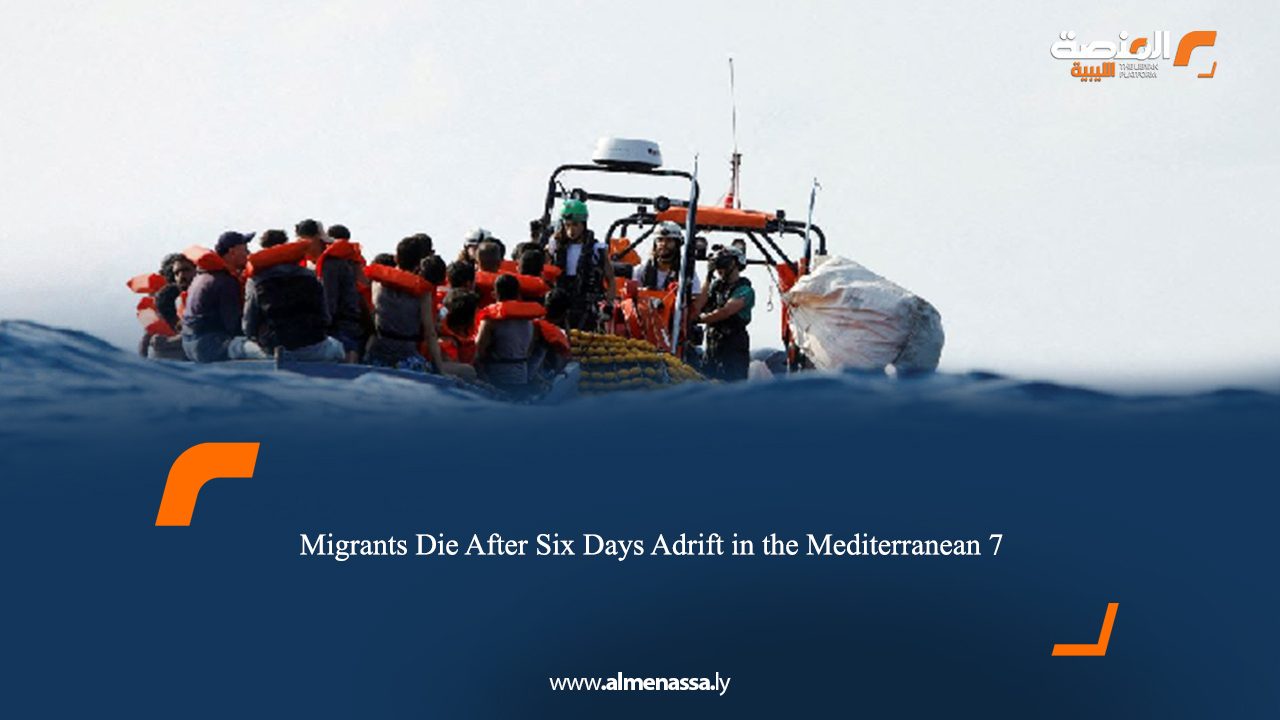After six days stranded at sea, a boat that departed Libya on August 27 ended in tragedy: seven migrants died, while 41 others were rescued, according to Germany’s Sea-Watch organization on Tuesday. Most of the survivors are Sudanese and were brought to Italy’s Lampedusa island on Tuesday evening by the rescue ship “Aurora,” after refusing assistance from Tunisian authorities.
Sea-Watch, which monitored the situation via its surveillance aircraft, stated that Malta declined repeated requests to intervene. Eventually, Tunisian authorities granted permission to transfer the migrants, and “Aurora” carried them to Lampedusa, located about 90 miles (145 kilometers) from Tunisia’s coast.
Testimonies from those onboard revealed that the boat was stuck in international waters between Tunisia and Malta, with passengers enduring harsh conditions for days before help arrived. The organization reported that Tunisia sent a supply vessel followed by its navy to evacuate the migrants, but they refused to disembark, citing Tunisia as unsafe due to the lack of a functioning asylum system and rising violence against migrants. A Sea-Watch spokesperson told AFP, “Some of these people would rather die than be forced to go to Tunisia.”
Despite international maritime law requiring immediate rescue of those in distress, no European country intervened. Italy sent a helicopter on September 1 to observe the situation but later withdrew. Sea-Watch warned that the absence of civilian rescue operations could have led to a larger disaster and condemned the disregard for humanitarian law.
Sea-Watch spokesperson Bana Mahmoud stated, “Forty-one people were left to their fate in the Mediterranean for six days. The fact that a civilian vessel had to intervene shows the extent of systematic legal violations by European states.”
Tunisia remains a key transit point for thousands of African migrants heading to Europe. In 2023, it signed a €255 million agreement with the European Union, nearly half of which was allocated to curbing irregular migration and boosting Tunisia’s capacity to prevent boats from departing. However, human rights groups report widespread discrimination and violence against migrants, while Italy’s far-right government has backed the deal as part of its efforts to halt boat arrivals and restrict NGO rescue operations.
The central Mediterranean is one of the world’s deadliest migration routes. Two days earlier, seven migrants drowned after two boats (pateras) carrying 63 people reached Spain’s Almería province. Additionally, three underage sisters died, and one person went missing after 65 migrants were rescued when their boat flooded during bad weather en route from Libya to Italy, according to Germany’s NGO “Resqship” on Sunday, August 24.


